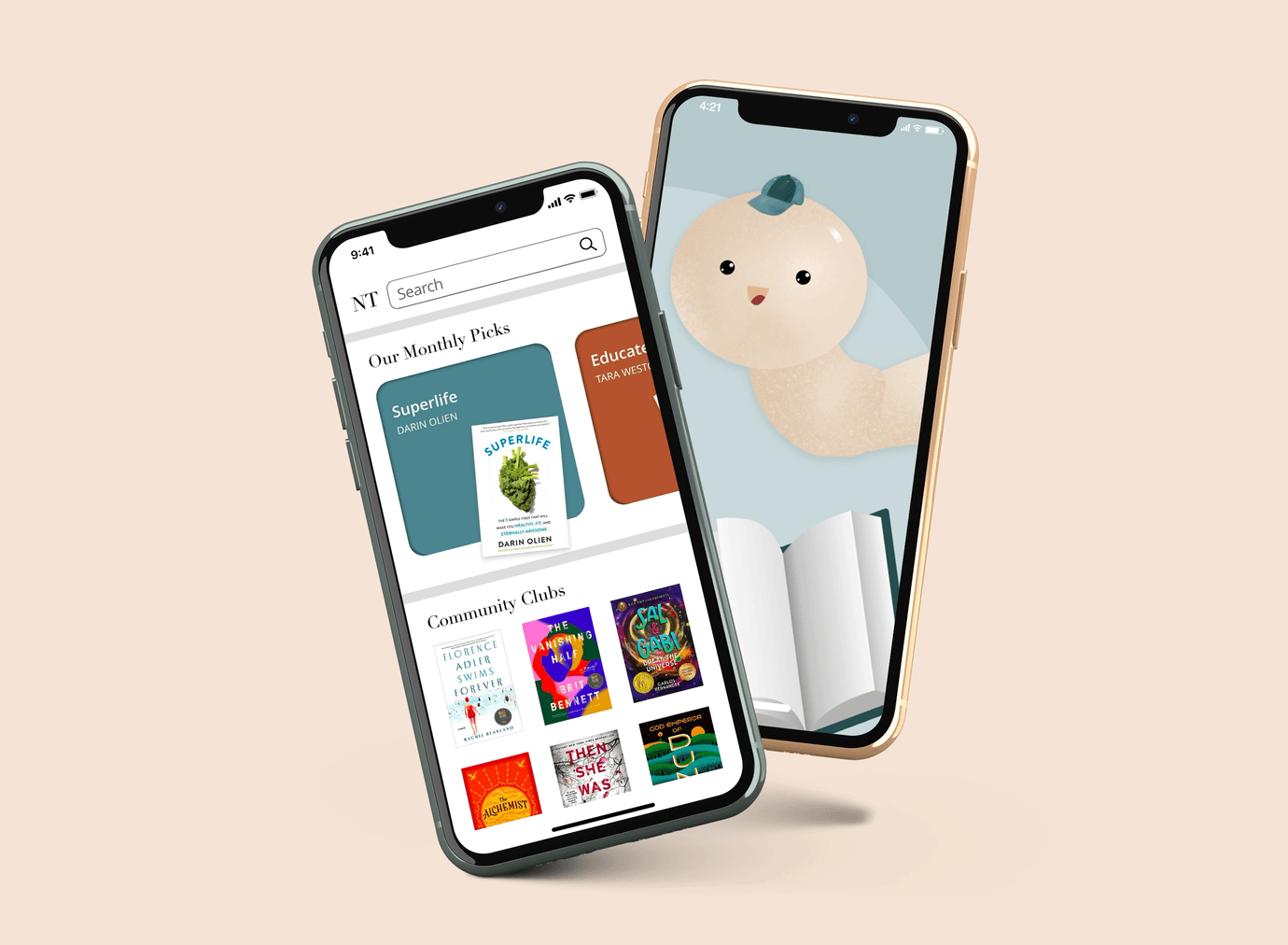Novel Tea
Virtual book club mobile application
-
Overview Novel Tea is a virtual platform for readers to host and attend book clubs. It aims to promote a "friends chatting about books by the fireplace" environment by suggesting common snacks, drinks, and a time to discuss via in-app videoconference as well as make reading more fun and inviting to those who disfavor it.
-
Tools Qualtrics, Figma, Maze, Adobe Illustrator, Adobe Photoshop
-
Timeline March 2020 - Present
-
My Roles UX Research, Product Design, Graphic Design, UI/UX Design















